From prison to TV – the strange rehabilitation of Boris Becker
Tennis may be keen to welcome back one of its heroes but, in Germany, the wider jury remains out on one of the world’s most notorious bankrupts.
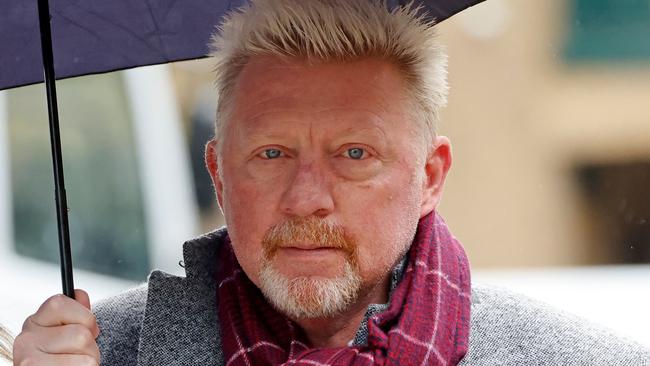
At 8.45am on Monday it was “lights, camera, action”, and then there he was. Boris Becker on television. This was Becker not talking about his eight months behind bars, not talking about how he feared for his life in Wandsworth prison, not talking about the occasions when other inmates had threatened to kill him. This was Becker talking tennis.
“The most important thing everyone wants to know,” Matthias Stach, his co-presenter, said as a welcome back, “is: how are you?”
Becker reported that he was fine and, indeed, he looked it. He was sporting a statement crew-cut plus a black suit, white trainers. He looked far fitter than in those court case pictures in April. “I’m back in peace and freedom,” he said. “I just hid for some time. And I missed you, Matthias, my doubles partner at Eurosport. I’m happy that I can again pursue my great passion, tennis.”
And with that he was up and running, his TV relaunch swift, neat and complete, he and Stach now twice a day until the end of the Australian Open presenting their Matchball Becker program from a Eurosport studio on the outskirts of Munich.
It’s curious that the “yellow press”, as the tabloids are known here in Germany, is desperate to find him, yet here he is, on his own shows in the nation’s homes on television twice a day. He has managed to keep secret where, in or near Munich, he is staying. This is a game that he is good at; when he was given early release from the UK, reporters were heavily man-marking Berlin and Munich airports and Becker came through on a private plane to Stuttgart.
Maybe this just feeds the appetite for anything Becker. On Sunday night Becker’s first wife gave a TV interview which was actually quite soft and empathetic ("We’re all a family"). Becker himself had given another Eurosport interview when he explained that he was fully up to speed with the game because he had got the BBC and ITV in prison, “so I was able to follow every match in Wimbledon and the highlights at the US Open”.
This follows quotes from a former fellow inmate, speaking to Stern magazine, where he said that despite Becker’s claims of hardship in prison, he did receive special celebrity favours, and even “drank coffee with the guards in the staffroom”. Anything goes.
It is curious, too, even to see him on the TV. He was sentenced to 30 months for bankruptcy offences but served eight and was then deported on a fast-track release for non-nationals. Part of the agreement is that he is not allowed back in the UK for several years, yet, as part of the Eurosport team, he can be teleported into the London studios for the broadcaster’s UK transmission. In other words, he is not allowed in the UK, but he can appear on our screens virtually instead.
This may sound like a fabulous deal, but the part that hurts him the most is that he cannot therefore get visiting rights to his 12-year-old son, Amadeus, who lives in London with Lilly, a second former wife, with whom he is on less cordial terms.
This is the same ex-wife who spent the new year in Dubai with Cathy Hummels, an influencer and one of Becker’s arch critics. Hummels, former wife of the footballer Mats Hummels, has a podcast, Shitstorm, in which she rails against his early release. “He fooled people,” she said, “he ruined them. You have to serve that (sentence).”
She also posted a new year’s picture of herself and Lilly with the acerbic message: “We’re celebrating new year together with the kids.”
Yet if you thought that was hurtful, Becker’s new year’s Instagram post is also of note. It’s not that he says that he feels he “came out stronger” from the “most difficult year of my life”, which is positive, it’s the fact that he posts this from a beach on an island off the coast of west Africa – not the best of looks for one of the world’s most notorious bankrupts.
So there is a lot of noise, a lot of it polarising. Even when he’s on Matchball Becker and opining about the state of Nick Kyrgios’s knee, it is hard not to hear it. So here is what it sounds like from Leimen, which is Becker’s home town.
Leimen is a small industrial town in the southwest of Germany, midway between Stuttgart and Frankfurt. It is known for two things: it was once home to the largest cement plant in the country and it produced Boris Becker.
How does a town like this make a man like Becker? The answer is not actually that hard to grasp. Go to the Tennis Club Blau-Weiss, where Becker started, five minutes from where his mother, Elvira, still lives, and you see a decent local club. It isn’t completely Becker-fied, though that may be because they are renovating. There is just one big picture of him, plus the indoor court named the Boris Becker Halle.
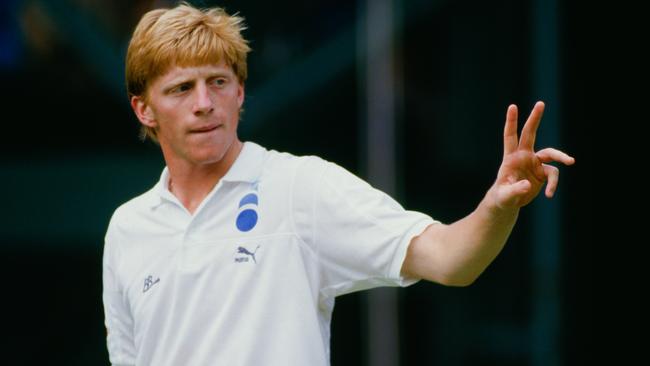
But look over the road, literally across a tiny road in a small industrial suburb, and you see Tennis Landesleistungszentrum: the state training centre. So Becker learnt with the local kids in the club and could see the state’s elite players right over the road.
His first ambition was to get from one side of the road to the other. Susi Schaffner, the sporting director of the state training centre, remembers the second. When Becker was 15, he won the state men’s singles championship – not boys’, but men’s – and it was, she says, a huge coup. “I remember going to congratulate him and him saying, ‘Bring me McEnroe!’ ”
Schaffner was five years older than Becker and, for a brief period, they were in the same junior squads and went to the same training camps. “He hated playing with the girls,” she recalls. “But that’s normal for boys. The worst thing he could do is to lose to a girl. And we had a good girl.” That was Steffi Graf.
On the wall of the training centre, there are three vast pictures of its three top graduates: Becker, Graf and Anke Huber. The one of Becker is one of the classics: at net, Wimbledon, mid-dive for a volley.
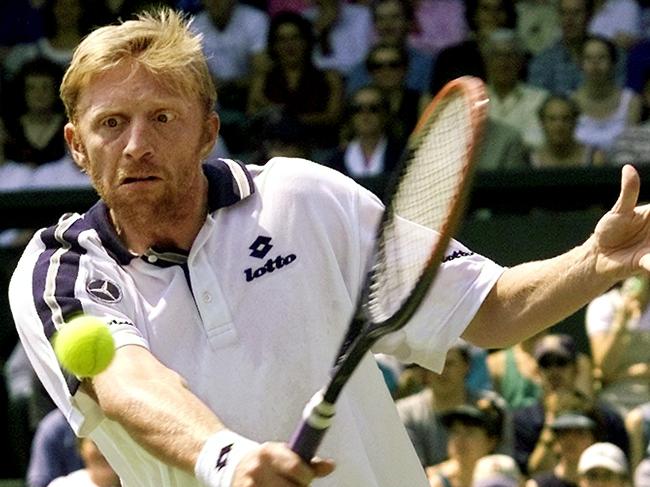
Back over the road, it is less elite, more a community feel. Sabine, Becker’s eldest sister, now lives in Switzerland but when she is back home, she will often return here for a game. Claus Hammer, a club director, last played with her in October.
He recalls both Sabine and Boris from their childhood. He shows a picture on his phone of Boris and a club youth team with himself in the background. “No,” he says, “I didn’t coach him. He already had a professional coach then.” He did play football with him though. “Boris was very good. He had to decide whether to play football or tennis.”
Both Schaffner and Hammer vividly recall those golden Wimbledon years, 1985 and 1986, when the teenage Becker shocked the world. “It was a really amazing time for all of us,” Schaffner recalls. Hammer remembers the club restaurant area heaving with members straining to see the television. “After that,” he says, “everyone wanted to be a member of the club. Germany is a soccer land but Boris made it a tennis land.”
And what now? What now that the town’s famous prodigal has done time in Wandsworth prison? Their answer is the same. You can’t take away what he did for the sport here. “I am so sad that he got in trouble,” Schaffner says. “I feel really sorry for him.”
“I see first the tennis man,” Hammer says, “then the man who made mistakes.” And he added that Becker is for ever welcome at the club. Does everyone here feel the same? Hammer shrugs. He reckons 80 per cent of the town are still with Becker.
The country is no doubt less in the Becker camp. Bankruptcy is a big sin here. And, of course, because he is Boris Becker, his financial affairs are all played out in the public domain.
He received a reported £450,000 ($800,000) for a TV interview on his return home. He has a two-part docuseries with Apple TV+ pending, and a book, plus an open job offer from the national tennis federation. Even when you are obliged to hand over half of your earnings to an insolvency administrator, that’s enough to get you to an African island for new year. And he is letting everyone see that too. “I think we will see a different Boris Becker after imprisonment,” his biographer, Christian Schommers, said, “with much more humility.”
The jury on that – and that is much of the country – is still out. The newspaper Suddeutsche Zietung described him as the “national treasure who never learnt to take personal responsibility”.
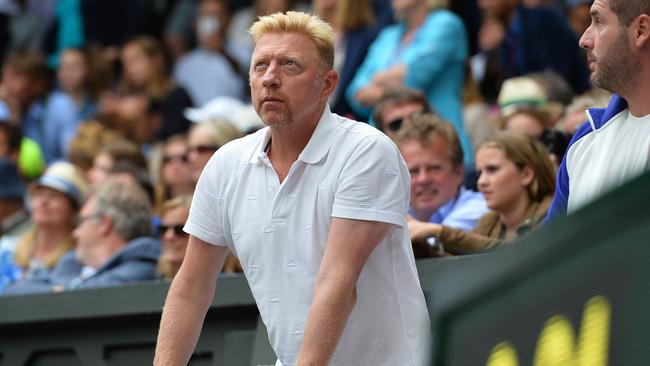
You wonder, therefore: did Eurosport ever think twice about having Matchball Becker? Is there any sense of tainted goods?
“Not for a minute,” Scott Young, the head of production overseeing Eurosport, says. “We’re delighted to have him back.”
Tennis, it seems, is only too keen to rehabilitate one of its greatest. Germany, you feel, requires more persuasion and Becker needs to work out how to give it.
Becker is free in his home country yet nevertheless in hiding, unsure where in the world to settle, but desperate to get to the UK from where he is banned. It is a strange, deeply unenviable version of liberty.
The Times


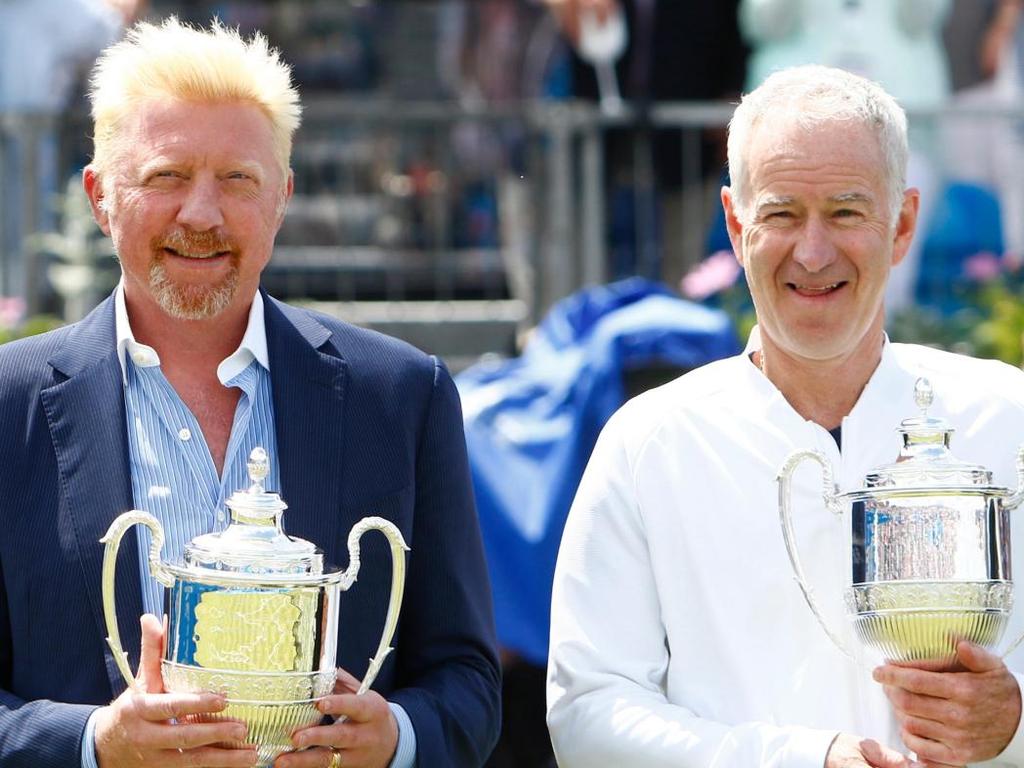
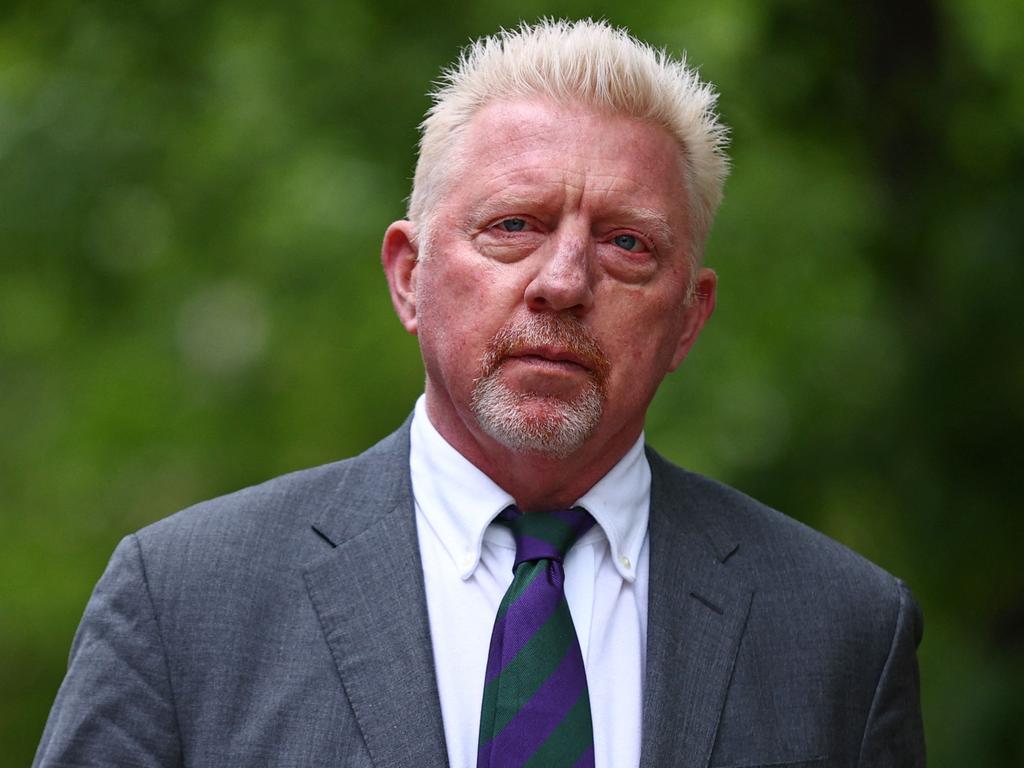



To join the conversation, please log in. Don't have an account? Register
Join the conversation, you are commenting as Logout